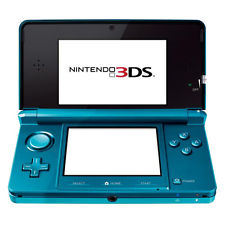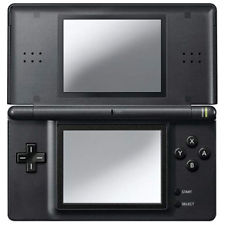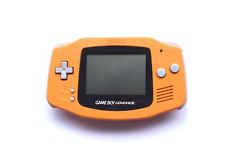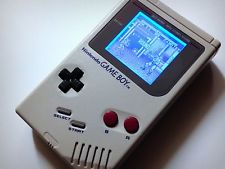|
April 26th, 2013, 01:06 Posted By: wraggster
We speak to analysts about Nintendo's recent fiscal report and the company's move to give Iwata the additional role of North American CEO
[h=3]Nintendo of America[/h]
Nintendo's recent fiscal report revealed shockingly poor sales for the Wii U console, and while the company did turn a profit, it once again failed to hit estimates. On top of that, the company decided to hand over the North American reins to Satoru Iwata, giving him the additional responsibility of Nintendo of America CEO. What does it all mean for Nintendo, and can Wii U bounce back?GamesIndustry International chatted with several leading analysts to get their takes.
"Nintendo of America's performance the past couple years has been a disaster on almost every level. Much of this was due to lack of execution on basic stuff like product marketing," said David Cole of DFC Intelligence. "They forgot Marketing 101 for the Wii U and no product could have done well without basic marketing support. Clearly a change in execution was long overdue. The damage done is enormous but there is the possibility of a turnaround. The fact is that the general public is not really aware the Wii U even exists so it is an opportunity to almost start from scratch."
Indeed, Nintendo need only look to its 3DS strategy as an example of how the company could potentially fix the Wii U, said Asif A. Khan, CFO of Virtue LLC.
"I still believe Wii U will outsell past flops like the Gamecube, and Nintendo's brands will retain their value for decades to come"
Asif A. Khan
"I believe that 3DS offers a perfect template for how Wii U could succeed in the future," he said. "Nintendo had an equally poor 3DS launch lineup as we have seen with the Wii U. One thing that holds true for most systems they have made, software moves the hardware. Nintendoland was not as compelling and groundbreaking as Wii Sports was in 2006. The wow factor of the Wii U is very hard to advertise on television and with no robust third-party exclusives, the system's launch can definitely be characterized as a flop. This does not mean that the company is going to die."
"Nintendo is projecting a huge 674 percent increase in net income year-over-year and the bar is incredibly low going forward with the last two years being some of the worst financial performances in the company's history. What has given life to the 3DS in recent months is the introduction of high quality first party titles and I believe we will see the same process play out for the Wii U," Khan continued.

"Nintendo's biggest problem right now is balancing quality with quantity of games. It takes time to make high quality games, and they clearly don't want to overspend on this console cycle. This painstakingly slow approach to software development is why the company is still standing today after past weak console cycles. I still believe Wii U will outsell past flops like the Gamecube, and Nintendo's brands will retain their value for decades to come."
EEDAR's Jesse Divnich shares Khan's optimism for Nintendo. "Nintendo expects to sell an additional 9 million Wii U units this fiscal year, which is a positive sign for the hardware. While the past quarter numbers have raised eyebrows, Nintendo's confidence in next year does indicate they likely have a few promotional/marketing programs in the pipeline, along with the strong likelihood of stellar content we've yet to see," he said. "We know Nintendo has been in this position before with the 3DS and they were ultimately able to regain consumer confidence and wallet share. We've yet to see the best Nintendo has to offer for the Wii U. I am reserving long-term judgment on the Wii U until we see stronger first party content released. If a new Super Mario, Smash Brothers, Pikmin or Zelda game are unable to revitalize sales, then I'd begin to be concerned."
Clearly, action is needed to turn things around, and with Iwata now helming Nintendo of America as well, it may be easier to push out a more unified global strategy.
"Nintendo's historically central role in gaming could be permanently diminished if it doesn't execute better in the US in the next 12 months"
Lewis Ward
"The shift in structure likely speaks to a desire to bring Nintendo's Japanese and American operations closer, consolidate its strategic efforts and maximize the opportunities available to the company on a global level," said Scott Steinberg, CEO of consulting firm TechSavvy Global. "With one foot in America and one in Japan, Iwata's leadership may be able to better bridge the gap between audiences and markets, and ensure that the company continues to innovate and deliver high-quality content that appeals to all. The key to rebounding is focus, differentiation, and ability to communicate value - hopefully, Iwata will be uniquely poised and able to draw on the best of both worlds to achieve this goal."
IDC Research Manager Lewis Ward added, "I think Mr. Iwata understands that for Nintendo to grow overall in 2013 and 2014 that business has to bounce back in the US in particular. It's been here where the drop in Wii sales was sharpest in recent years and where iPhones and iPads and so forth have put serious pressure on the 3DS. I read this change in role as a signal that Nintendo's board will keep an exceptionally close eye on US trends in the coming quarters, and will do everything possible to boost Wii U and 3DS performance in the US."
"Nintendo will get a little leaner and meaner in 2013. The salad days of the Wii and DS family are gone and it could very well be that Nintendo's historically central role in gaming could be permanently diminished if it doesn't execute better in the US in the next 12 months."
Even if Nintendo does execute better in the next 12 months, it's going to be facing an incredibly competitive market as new consoles from Microsoft and Sony will likely be on store shelves, noted Billy Pidgeon, an independent analyst who previously worked at Inside Network, M2 Research and IDC. Pidgeon believes "Nintendo's FY 2014 forecasts for Wii U and 3DS are very aggressive relative to sector potential" and he also cautions that "ninth generation will be selling in more slowly across all vendors in comparison with the eighth generation as the console business has changed fundamentally."
It's hard to judge currently what sales volume ninth generation consoles will achieve, but it's ultimately important to keep in mind that Nintendo doesn't need to dominate any "console wars" to be successful. The company has a track record of being profitable, and if you're an investor, that's immensely appealing.
"I got quite a laugh this morning when I read the headline that Nintendo missed their profit expectations. The real headline to me is that Nintendo has returned to profitability," remarked Khan. "Considering many folks in the industry claim that this company is on a colossal death spiral, a weakening yen and new compelling software may prove bears wrong yet again. When the stock market prices a company for death and they don't die, there is usually a lot of upside to being a contrarian."
http://www.gamesindustry.biz/article...-101-for-wii-u
For more information and downloads, click here!
 There are 0 comments - Join In and Discuss Here There are 0 comments - Join In and Discuss Here
|
|
 NES
NES











